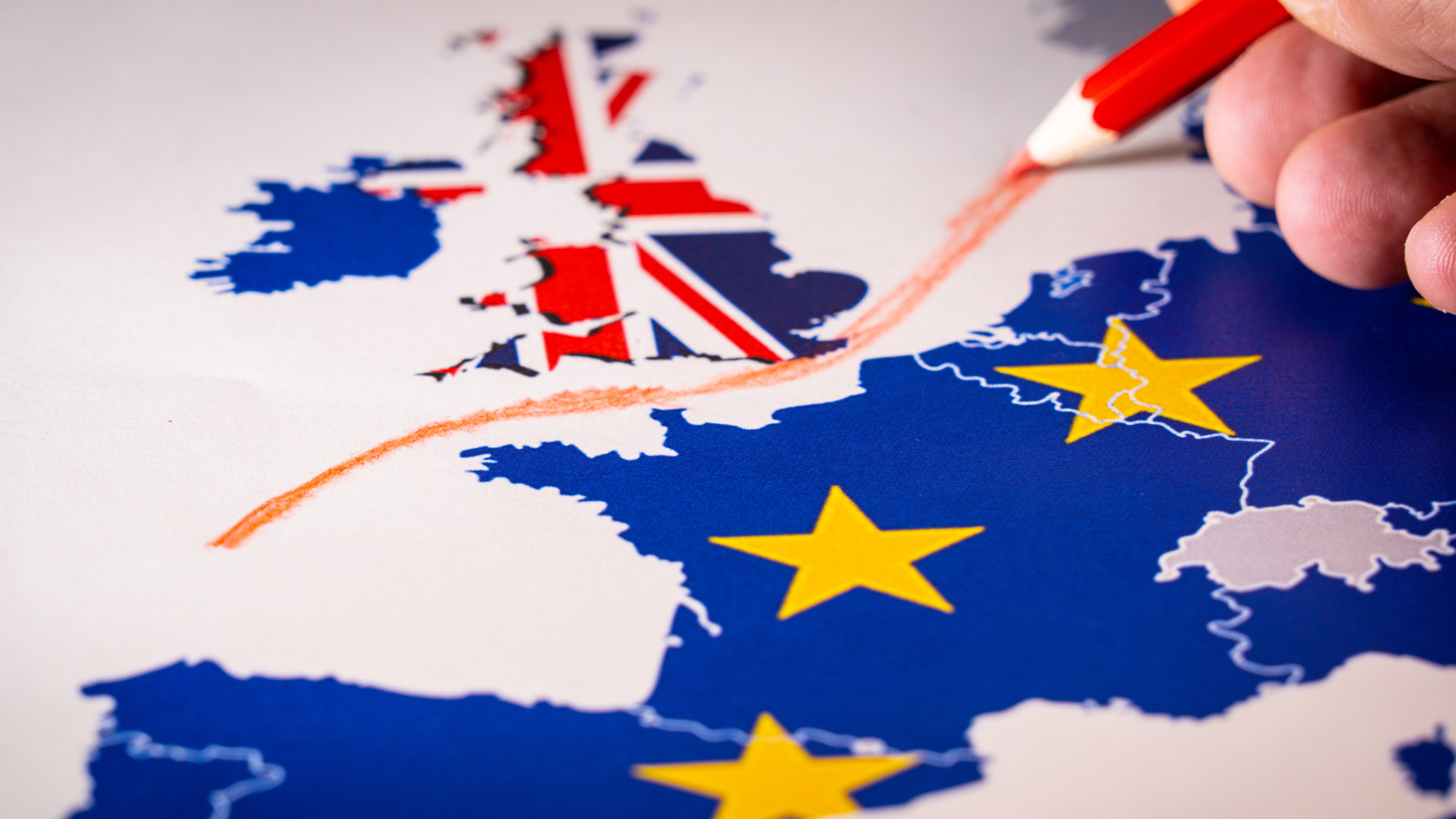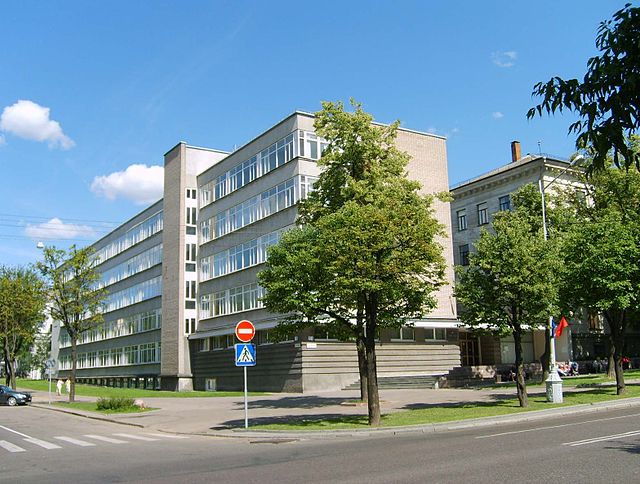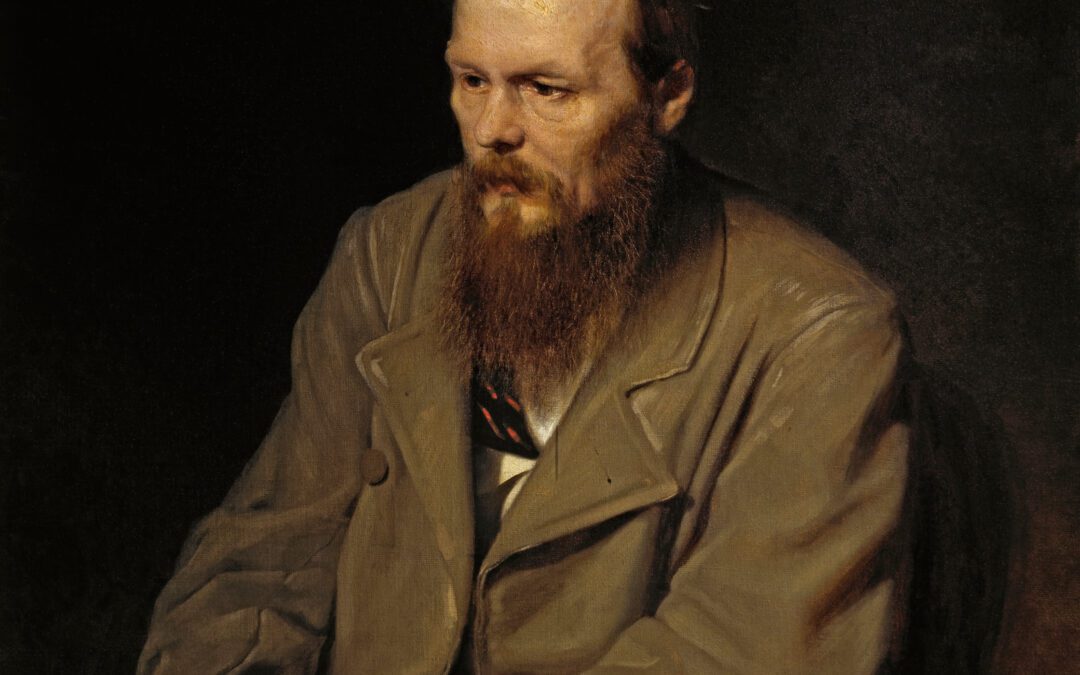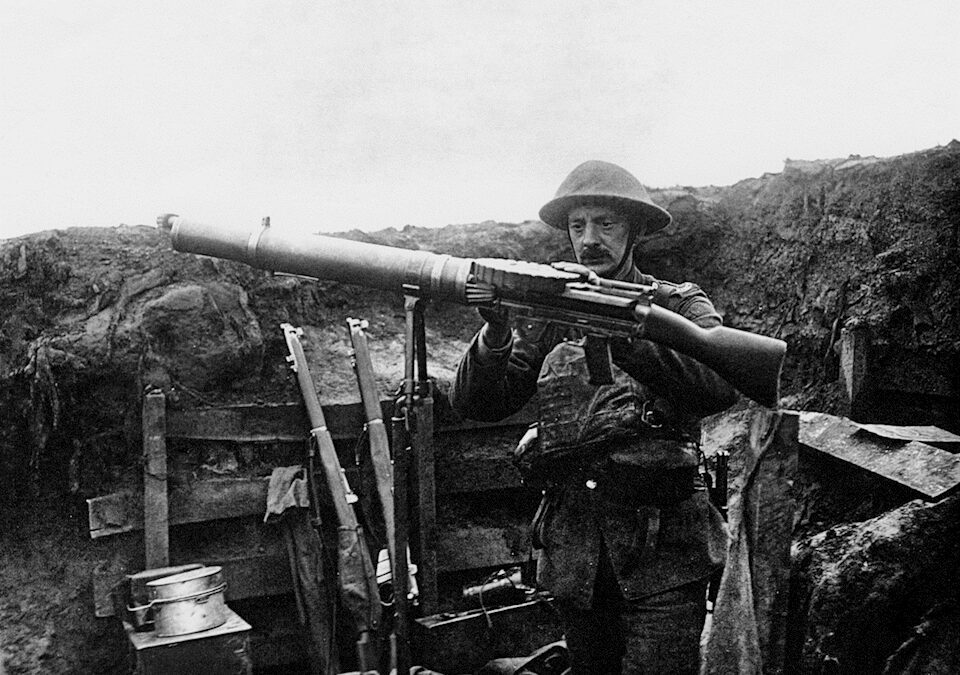The following talk was given at the British Council in Paris on Wednesday 22nd May 2019, on the occasion of the unveiling of a plaque at 60, Boulevard de Montparnasse, earlier that day.
The plaque marks the building, now containing apartments, which in Lawrence’s period was the Grand Hotel de Versailles. Lawrence stayed there from March to April 1929 (90 years ago) when looking for a publisher for a cheap edition of Lady Chatterley’s Lover, which would undercut the pirate editions that already existed. His mission was successful, and he signed a mutually-beneficial contract with the American publisher Edward Titus, from which he earned over £1000 before he died in the following year. In attendance on the occasion for the unveiling were Philippe Goujon (Mayor of the 15th arrondissement), Norbert Giaoui (president of the building’s co-owners’ association), British Ambassador Baron Edward Llewellyn, Lawrencian academics Ginette Roy and Neil Roberts, and DH Lawrence Society member Robert Bullock, whose project the creation of the plaque has been. The reception at the British Council included three lectures: Neil Roberts’ on ‘DH Lawrence and French Literature’, Ginette Roy’s on ‘DH Lawrence and Paris’, and my own on ‘DH Lawrence and Brexit’.
ADDRESS
The last time that I prepared to go to Paris, seven weeks ago, for Ginette Roy’s thirty-third annual international DH Lawrence Conference at the University of Nanterre (on ‘Lawrence and the Anticipation of the Ecocritical Turn’), I had thought that I might be entering the EU from outside of it. Then whilst I was here, I thought there was a fighting chance that I might be returning from the EU to outside of it. Or that when I returned for this event, I would then be crossing an EU border at St Pancras Station.
The uncertainty continues.
I stand in front of an international, largely multilingual, crowd. Ambassadors, by definition, mediate cultures. So do British Council workers. And French Lawrencians. And, in our small way, English Lawrencians willing to come to Paris to celebrate Lawrence’s relationship with France.
Nonetheless I am not going to assume how any of us feel about the European Union.
What I am going to do is to try to look at the question facing the British public on the 23rdJune 2016 from Lawrence’s point of view.
Not because I assume that all of us are Lawrencians. I am strenuously trying not to assume.
And of those of us who are Lawrencians, I doubt that any of us agree with Lawrence on every issue. It is, perhaps, not at the level of detailed doctrine that one is a Lawrencian, but more at the level of approach and mode of being. Still, I believe that Lawrence had some insights, as well as impulses, worth paying attention to.
But what anyone might make of Brexit is complicated by the fact that impulses in its favour are multiferous, whereas remain impulses, though they likewise encompass much of the left-right spectrum, are relatively coherent.
Lawrence’s Sea and Sardinia, of 1921, opens:
‘Comes over one an absolute necessity to move. And what is more, to move in some particular direction. A double necessity then: to get on the move, and to know whither.’ (SS 7)
Those who have supported Brexit have felt an absolutely necessity to move, but whither that movement, if it happened, would be, is not yet determined. Whether Britain would move, as it were, towards Norway, Switzerland, Singapore, Canada, or the United States; whether it would fold itself into a version of England, or expand itself into a version of the Commonwealth, is unknown.
And Lawrence, like anyone else, would have felt very differently about these different possibilities.
The other complication is that he lived in a different time, when the economic self-interest of the European nations trended strongly towards mutual antagonism rather than cooperation.
Lawrence diagnosed this in a letter to his German publisher, the head of the Insel Verlag, in March 1921, when the League of Nations had just been idealistically born.
Dr Anton Kippenberg was developing a Biblioteca Mundi, on which Lawrence offered his advice:
‘As for binding men together in a new spirit of Internationalism…alas, I doubt it is no good trying that any more. The only active internationalism is the Soviet sort, the Moscow manifestoes. And these are dead against the internationalism of the cultured spirit.’
‘I am sure, that mental internationalism has no effect on real nationalism…Mentally, we are all cosmopolitan nowadays. But passionally, we are all jealous and greedy and rabidly national. For my part, I prefer to live abroad and to escape as far as possible the stigma of national interest. But it is all very well. Here in Taormina, in Rome – in Cannes – nations are more suspicious, jealous, jeering and antagonistic than ever they have been. It is a kind of rabies: hate-your-neighbour madness. It is absolutely time to put away all idealism on this matter. League of Nations is as ridiculous as a poor vaudeville. […] And when there is a mob unison – as beween France and England, or between all socialists – it is now a unison founded on the lowest interests and the lowest passions of greed and spite […] don’t trust to a new wave of idealism in Europe. […] There are no good intentions in these old countries […] And the fool who persists in idealistic blindnesses will get his throat squeezed first’ ‘The hate accumulates everywhere. It means war ahead: no love and peace.’ (3L 679-680)
This pessimistic pronouncement is one of the earliest moments at which Lawrence predicted the Second World War.
But two years before, he had had a more positive vision of a Europe that would be united by labour. His textbook of European history, written between July 1918 and May 1919, ends thus:
‘The people now move towards power… Europe is again moving towards a oneness. Nations are once more tending to merge into one vast European state, a vast European rule of the people. Long ago, Europe was one vast realm ruled by a gorgeous emperor in Rome. Now the circle has almost been completed again. Europe seems to move towards unification, towards the institution of one vast state ruled by the infinite numbers of the people – the producers, the proletariat, the workmen. The national spirit brings us to this, which is ultimately the international or universal spirit.’ (MEH 242)
Here we have a previsioning of a version of the EU, but one more led by its workers.
As for the one that we have, and the Brexit debate:
I am convinced that Lawrence would have been appalled at the fact of the Referendum. Plebiscites are disliked by many of those with considerably more respect for democracy than Lawrence possessed, and Lawrence would have been as critical as anyone of the motives which appear to have motivated this one, and the terms in which it was conducted.
As to the substance of the debate, I think his feelings would have been mixed.
He consistently opposed agglomeration.
In his essay on Walt Whitman in his 1923 Studies in Classic American Literature, he riffs on a section of ‘Leaves of Grass’ which, with reference to the United States, culminates in the capitalised phrase ‘ONE IDENTITY’
Lawrence echoes mockingly:
‘ONE IDENTITY!
ONE IDENTITY!’ (SCAL 148)
and proceeds to argue against the dissolution of distinctions.
In his 1922 novel, Aaron’s Rod, Aaron says to his friend:
‘“Well,” he said “you’ve got men and nations, and you’ve got the machines of war – so how are you going to get out of it? League of Nations?”
The friend replies:
‘Damn all leagues. Damn all masses and groups, anyhow.’ (AR 119)
Lawrence disliked the cultural homogenisation that he diagnosed in the Europe of his own time: ‘the horrible sameness that was spreading like a disease over Italy from England and the north.’ (AR 153)
In his 1916 travel book Twilight in Italy, the eponymous twilight is precisely the spreading of the capitalist spirit from England into Italy, rendering both countries alike.
Lawrence saw cultural groupings – the English, Etruscan, Arctic, African, Australian – as spiritual phenomena waxing and waning unconsciously, over time, but not as consciously willable, or constructable around a set of ideals, such as the EU may be thought of as trying to do.
He would, I think, have therefore objected to the use of stars on the EU flag, in the same way that he did of Hibiscus and Salvia flowers as symbols of the Sicilian socialists, asking in the poem named for those flowers:
‘Come now, speaking of rights, what right have you to this
flower?’ (1 Poems 266)
He might have asked about the EU flag:
‘Come now, speaking of rights, what right have you to those stars?’
Stars being important presences in his art and thought.
Indeed on the subject of rights, the EU tries to keep all its states at roughly the level of its most socially progressive and liberal members. Lawrence’s values, on homosexuality and some other matters, were not liberal by the standards of his own time, nor would he possibly have approved of enforced liberalisation.
On the other hand, as someone who did push the Overton Window – the remit of what it is politically acceptable at any one time to think and say – he would have opposed its rapid shrinking in our own time, arguably with the acquiescence if not assistance of the EU. It is with this in mind that the UK Independence Party places such a strong emphasis on freedom of speech.
Though Lawrence was no communist, was indeed for most of the twenties anti-communist, nor did he have any love of capitalism, as his letter to Kippenburg makes plain. Insofar as the EU enforces free market ideas, Lawrence would have shared the Lexiteer (left-wing Brexiteer) critique. Greek austerity, insofar as it was EU-imposed, is something Lawrence would have condemned with one of his strongest negative terms: ‘bullying’.
As many of you will know, the ‘Britain Stronger in Europe’ campaign fought the referendum largely on the basis of economic conservatism: that the UK risked economic disaster were it to leave.
‘Vote Leave’, on the other hand, ridiculed this argument as ‘Project Fear’, and directed itscampaign at the heart rather than the head, with the unvoiced implication that even economic turmoil would be a price worth paying to regain sovereignity, dignity, and national democracy.
Lawrence certainly favoured the heart over the head, and grander motives over money motives. In Movements in European History he claimed that he preferred the Russian ancien regime, for all its cruelties and corruptions, to the squalid, limited materialism of Bolshevism as he understood it. (MEH 266)
And he complained in 1919 that: ‘it is the producer who matters, only the producer. Pride is nothing, glory is nothing, only production is important.’
That could come straight from a UKIP manifesto.
He even had a vision of a non-commercial England which fits with anti-elitist Brexit sentiment.
This poem of 1929 is called:
‘As for me, I’m a patriot’
‘I’d betray the middle classes
and money and industry
and the intellectual asses
and cash Christianity
but not the England that made me
the stuff of a man,
the old England that doesn’t upbraid me,
nor put me under a ban.’ (1 Poems 464)
Sofar from thinking that Europe was culturally superior, a sentiment implicit in some EU rhetoric, Lawrence felt that Europe was being superceded.
Along with Oswald Spengler, author of Der Untergang des Abendlandes, The Decline of the West, published in the same year as Aaron’s Rod, he thought that Western Europe had had its day.
‘For a thousand years Europe has led the world, and grows apace. But our spirit and our manhood begin to weaken.’ (MEH 257)
The War has ‘smashed the growing tip of European civilisation’ (MEH255)
So he looked elsewhere.
In 1923 he wrote: ‘Two bodies of modern literature seem to me to have come to a real verge: the Russian and the American’ (SCAL 11–12).
And he thought that these two countries would inherit the future.
Though he also saw potential in Latin America.
For some who have similar feelings today, perhaps more focused on China, this fact argues in favour of European unity. For others, it argues in favour of national freedom to make alliances with precisely those countries that are perceived to be on the way up.
Though I’m not sure that Lawrence would have taken a position on this, I think he would have disliked the EU’s exclusivity, that has been charicatured as ‘Fortress Europe’.
Lawrence had a friendly interest in Russia all his life. He perceived it as it has often been perceived before and since, as half in, half out, of Europe. But he would have condemned the firm othering of Russia by the EU and NATO in the 90s and early 2000s, when Russia approached the former to discuss the possibility of joining, and was emphatically told that this could never happen – reaffirming the divide between Russia and Europe that the Bolshevik Revolution and the Cold War had first made decisive.
Nigel Farage appears on RT. I think that Lawrence would have done the same, if he had found it the only mass media organ through which he could express his less than mainstream views.
Finally, one can infer that there was in some Brexit voters not just a willingness to acceptchaos as the price of Brexit, but a positive desire for a chaos that would smash up a system that kept the same kind of people in power, whether under Conservative or Labour rule.
With this kind of sentiment – embracing destruction in order to allow something new – Lawrence had much sympathy.
In Women in Love, Birkin tells his friend Gerald:
‘When we really want to go for something better, we shall smash the old. Until then, any sort of proposal, or making proposals, is no more than a tiresome game for self-important people.”
The little smile began to die out of Gerald’s eyes, and he said, looking with a cool stare at Birkin:
“So you really think things are very bad?”
“Completely bad.”’ (WL 54-55)
On the other hand – and this is where my thoughts reach their turning point –
let us recall the options that I set out at the beginning as possible versions of Brexit:
Lawrence would have known that it was not possible even if desirable for countries to mimic the relationships of other countries with third parties. He would have opposed UK subordination to any other power, perhaps especially the United States. He had no interest or pride in the British Empire, and was forward-thinking enough to reject any idea of reviving an alliance, such as today the Commonwealth, rooted in the past.
As for a retreat into Englishness – I am sure that he would have distrusted the kind of little England that some Brexiteers were voting for, especially one based on an assumption of superiority. This was something he mocked ruthlessly, for example in this 1929 poem ‘The English are so nice’:
‘The English are so nice
so awfully nice
they are the nicest people in the world.
And what’s more, they’re very nice about being nice
about your being nice as well!
If you’re not nice they soon make you feel it.
Americans and French and Germans and so on
they’re all very well
but they’re notreally nice, you know.
They’re not nice in our sense of the word, are they now?
That’s why one doesn’t have to take them seriously.
We must be nice to them, of course,
of course, naturally.
But it doesn’t really matter what you say to them,
they don’t really understand
[…]
just be nice, you know! Oh, fairly nice,
not too nice of course, they take advantage
but nice enough, just nice enough
to let them feel they’re not quite as nice as they might be.’ (1 Poems 568)
Lawrence was particularly critical of his own country for its rejection of him – witness the difficulty that he had getting Lady Chatterley’s Lover into print there (hence the visit that this occasion commemorates).
It was a novel that he was writing to the English, because they had most need of it, but for that very reason, would have least access to it (because of legislation governing obscene publication).
Were Penguin Books to lose its trial over the novel’s publication today, it could appeal to the European Court of Human Rights, which is reliably at the most liberal end of member states’ interpretations of the laws, and which has built up considerable case history on obscene publication.
Then, crucially, there is the fact that he opposed nationalism, as his letter to Kippenburg, his behaviour during WWI, and many of his other writings, demonstrate.
The fact that the EU restrains it, and in so doing reduces the chances of European war, is something for which he would have valued it.
Most importantly, he was instinctively open to other cultures, in a way that the EU facilitates and celebrates within its borders.
Travel was relatively easy for him in his time, apart from the disruption caused by the War. Before that War, restrictions on immigration to Britain barely existed. Things got much tougher after the Second World War, but were then made easier again, and therefore closer to what Lawrence knew, with the establishment of the EU and the Schengen Zone.
The Rainbow is set in motion by the arrival in rural Nottinghamshire of a Polish woman, the wife of a political refugee. Then, as now, Poles could come to Britain freely.
She is greeted with some incomprehension.
Tom’s housekeeper tells him that ‘Mrs Bentley – says as she’s fra th’Pole – else she is a Pole, or summat’
But to Tom: ‘It was a profound satisfaction that she was a foreigner. A swift change had taken place on the earth for him, as if a new creation were fulfilled, in which he had real existence. Things had all been stark, unreal, barren, mere nullities before. Now they were actualities that he could handle.’ (R31-32)
That is, the arrival of a Polish migrant opens up the novel’s Widening Circle, and makes the narrative, and historical progress, possible.
At the age of 27, Lawrence left Britain for the first time, to visit a maternal Aunt who had married a Pole and lived in Germany, simultaneously eloping with a German he had met in Nottingham and thought, ‘that’s her’.
That German came from Metz, where her father was an occupying officer, in a part of the world that has been chosen for EU institutions precisely as a guarantor of peace. Lawrence often passed through Strasbourg on his way to visit his in-laws, and he hated Prussian militarism.
In his unfinished novel of 1921, Mr Noon, the protagonist moves from Eastwood to Munich, where he has a morning walk described thus:
‘It was a lovely, ringing, morning-bright world, for the Englishman vast and glamorous. The sense of space was an intoxication for him. He felt he could walk without stopping on to the far north-eastern magic of Russia, or south to Italy. […] For the first time he saw England from the outside: tiny she seemed, and tight, and so partial. Such a little bit among all the vast rest […] Her marvelous truths and standards and ideals were just local, not universal. They were just a piece of local pattern, in what was really a vast, complicated, far-reaching design. […] He saw the white road, which seemed to him to lead to Russia. And he became unEnglished.’ (MN 134-35).
I can think of no more beautiful manifesto for free movement within and beyond Europe. And, had he fallen ill along the way to Russia, he would of course have appreciated free health care on an EHIC card. He would have liked to get his plays put on in European theatres, with English actors, with a minimum of fuss. And so on.
I’d like to conclude with the thoughts I had whilst sitting in the garden of Lawrence’s second childhood house in Eastwood last June (and you need to know that Walker Street was the location of the house the Lawrences moved to next):
‘Sitting in the garden of the Breach House, sipping Ceylon tea and looking at the rhubarb and the red bricks, the green paint, the Gothic gable, the lawn, the neighbours’ washing, the Country of my Heart, it strikes me how English Lawrence was, and how unEnglished he was to become. Not not English but not only English, his circle widening, just as official Englishness was constricting round the trigger of a gun. London, Cornwall, England were too narrow for his unEnglishness, which circumnavigated the globe; the sun never set on it. International war was unthinkable – a nightmare of drone-like-remoteness. Meanwhile, over my tea, I recall the George flag filling the bow window of a house on Walker Street.’
Lawrence would have shared many of the more (as well as less) sensible criticisms made of the EU, and would celebrated it in the spirit of its wisest admirers. He would have rejected parochialism, superiority, or exclusivity in England, in Britain, and in Europe alike.
Let the EU, in other words, take DH Lawrence as its focus group and its consultant.
BIBLIOGRAPHY
AR Aaron’s Rod, ed. Mara Kalnins (Cambridge: Cambridge UP, 1988).
3L The Letters of D. H. Lawrence Volume III: October 1916–June 1921, eds. James T. Boulton and Andrew Robertson (Cambridge: Cambridge UP, 1984).
MEH Movements in European History, ed. Philip Crumpton (Cambridge: Cambridge UP, 1989).
MN Mr Noon, ed. Lindeth Vasey (Cambridge: Cambridge UP, 1984).
1 Poems The Poems. 3 Vols., ed. Christopher Pollnitz (Cambridge: Cambridge UP, 2013).
R The Rainbow, ed. Mark Kinkead-Weekes (Cambridge: Cambridge UP, 1989).
SCAL Studies in Classic American Literature, eds. Ezra Greenspan, Lindeth Vasey and John Worthen (Cambridge: Cambridge UP, 2003).
SS Sea and Sardinia, ed. Mara Kalnins (Cambridge: Cambridge UP, 1997).
WL Women in Love, eds. David Farmer, Lindeth Vasey and John Worthen (Cambridge: Cambridge UP, 1987).




